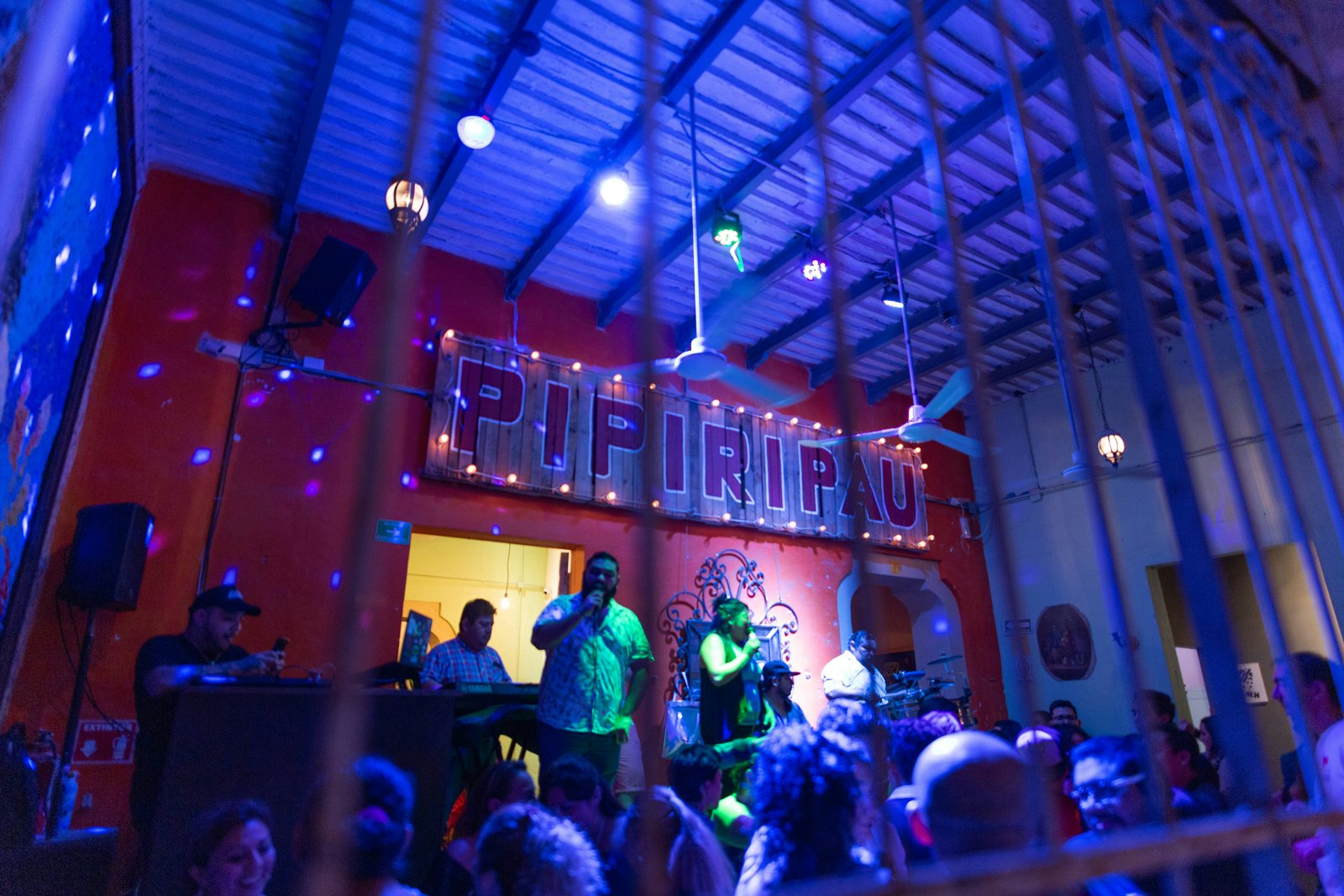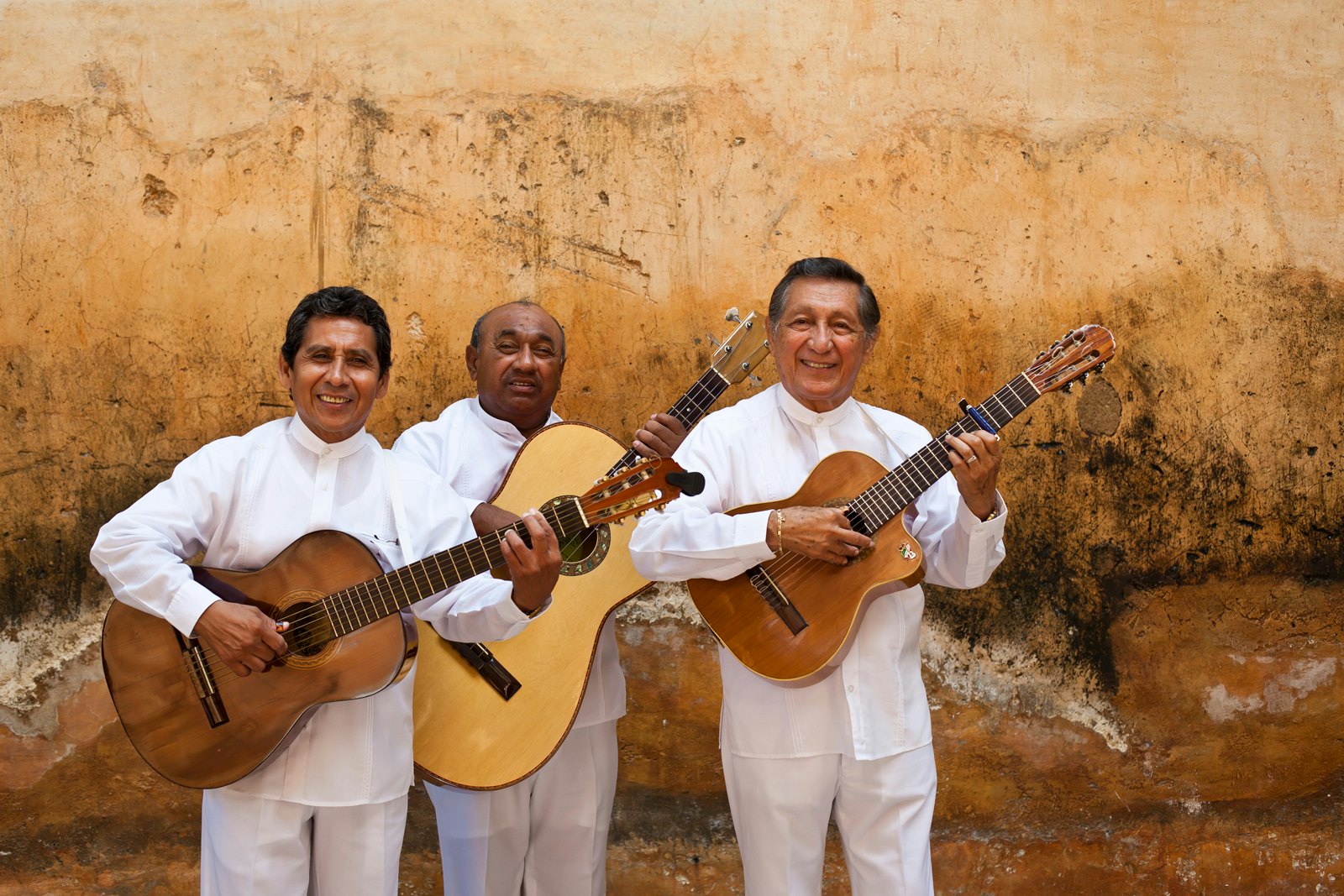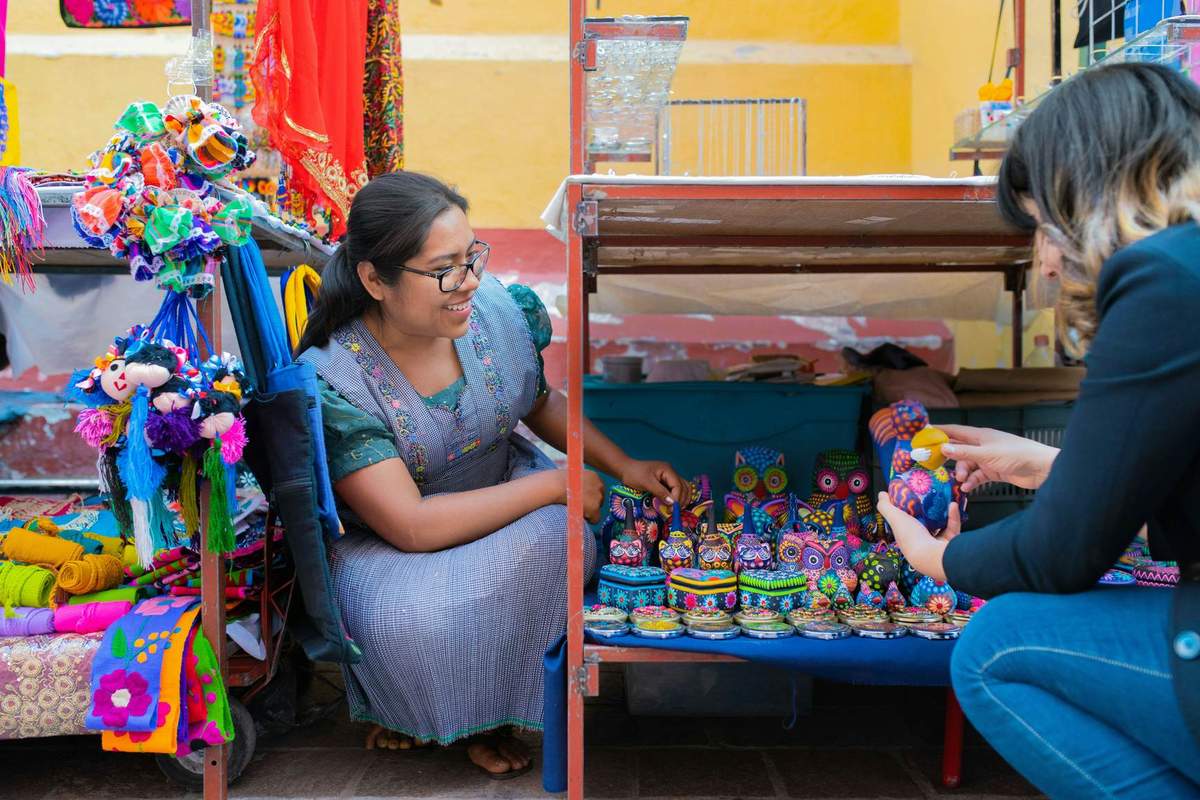
The budding music scene in Merida is eclectic and engaging © Amanda Strickland / Lonely Planet
Mérida, the capital of the state of Yucatán in the south of Mexico, is a city set to music. Stroll through Plaza Grande on a Friday night and you’ll see local grupos jamming, bare palms tapping African drums, instrument cases flung open so passersby can drop a few pesos. “Musicians here play from the heart,” says local guitarist Armando Gonzalez who often plays in the plazas. “I wear sunglasses when I perform so I can close my eyes and feel the music.”

On a Sunday afternoon, you might see a street blocked off in Centro, cumbia filling the air, couples twirling. You might duck into a cevicheria (ceviche shop) and enjoy your aguachile (marinated shrimp) with a side of live salsa music. And between sets, you’ll likely see the musicians hanging with the crowd. “Yucatecans are special people,” says Gina Osorno, another Mérida native who fronts a jazz band called The Dreamers. “We’re friendly and inclusive. As musicians, we bond with our audience. In other cities, the musicians just entertain. Here, my audience is my family.”
A growing scene
That friendliness and inclusiveness, combined with a thriving Maya culture, stunning colonial architecture, warm weather and delicious food you’ve probably never heard of (sikil pak, papadzules, huevos motuleños) have led to a recent tourism boom and an influx of expats. Most venues that hire musicians in Mérida have at least a couple of nights dedicated to salsa, cumbia and bachata. But as the city grows and becomes more international, the music scene is growing, too. “The musicians that come from other countries enrich our musical culture,” says Richo Can, who plays conga drums in a tropical punk band called La Chancil. “They bring new types of music. And they’ve expanded the scene. There are way more places to see live music in Mérida than there were six years ago.”

Cantina culture
One of those places is the new cantina El Dzalbay, a microcosm of today’s Mérida. The cantina is housed, like most businesses in Mérida, in a century-old building and the owners are a diverse bunch: a Mérida local, a guy from France, a guy from Spain, a guy from Italy and a guy from the U.S. who met at the Yucatán Symphony Orchestra where three play the French horn, one plays the double bass, and one works as the orchestra’s librarian.
“Mérida’s music scene is about to pop,” co-owner Rodrigo Moguel says. “Like popcorn. As the city becomes more culturally diverse, we’re seeing all kinds of talent that we never had before.” Five nights a week, El Dzalbay hosts rock ‘n’ roll cover bands, gypsy jazz (check out local band Swinga Tu Madre), and DJs. Sunday nights are a “jam session” where seasoned jazz and blues musicians improvise for hours with younger musicians who are still learning their craft. This is the music of Merida: eclectic, international and often set in cantinas.

The oldest cantina in the city, El Cardenal, serves up delicious Yucatecan snacks with its regular schedule of live music, including Saturday night tributes to famous musicians (Luis Miguel, Soda Stereo, Santana) and “Blues & Brews” on Wednesdays. “The Mayans used music to ask for favors from the gods. So here in Yucatan we are musical by nature,” says El Cardenal owner Said Farah. “It’s important to me to use my cantina as a showcase.”
At Pipiripau, Yaruba, a salsa band comprised of Mérida locals and Cuban expats, plays every Friday, Saturday and Sunday night. And at La Negrita, a cantina so popular it’s often standing room only, you’ll see locals and tourists sharing cubetas of Mexican beer and botanos and dancing as Richo Can plays his congas with La Chancil.

Festival life
In addition to the bar scene, the city has its share of music festivals. The Mérida International Brass Festival, held every December, brings world-class brass players to spend a week performing, teaching, and giving talks.
Other festivals include the Swing Latino and Bachata Fest, which will happen for two days this May; and Méridafest, an annual celebration of the founding of the city, where you can watch wind band ensembles accompany the traditional Yucatecan partner dance Jarana, the women in colorfully embroidered dresses, flowers pinned to their hair, the men in guayaberas and fedoras.

Out in the streets
But nowhere is the musical tradition of Mérida more alive than in the trovadores you’ll see walking around Centro, trios of men dressed in white and bearing guitars. Trova music comes from 19th century Cuba, but is as much a staple of Mérida as the Spanish flecked with Maya words, the you-and-me chairs (chairs around town constructed side-by-side but facing each other, designed for conversations between lovers), and the 112-year-old ice cream parlor on Paseo de Montejo.
Because trova music is mainly characterized by its romantic lyrics, it’s not uncommon to see a teenage boy pressing pesos into the hands of the trovadores so they’ll go to his girlfriend’s house and serenade her. “Yucatan is the crib of trova,” says Tomas Andueza, a 58-year-old trovador who’s lived in Mérida all his life. “People come from all over to hear the classic Yucatecan trova. It’s poetry. The lyrics are beautiful. We keep playing our trova so the tradition never dies.”
Plan with a local




